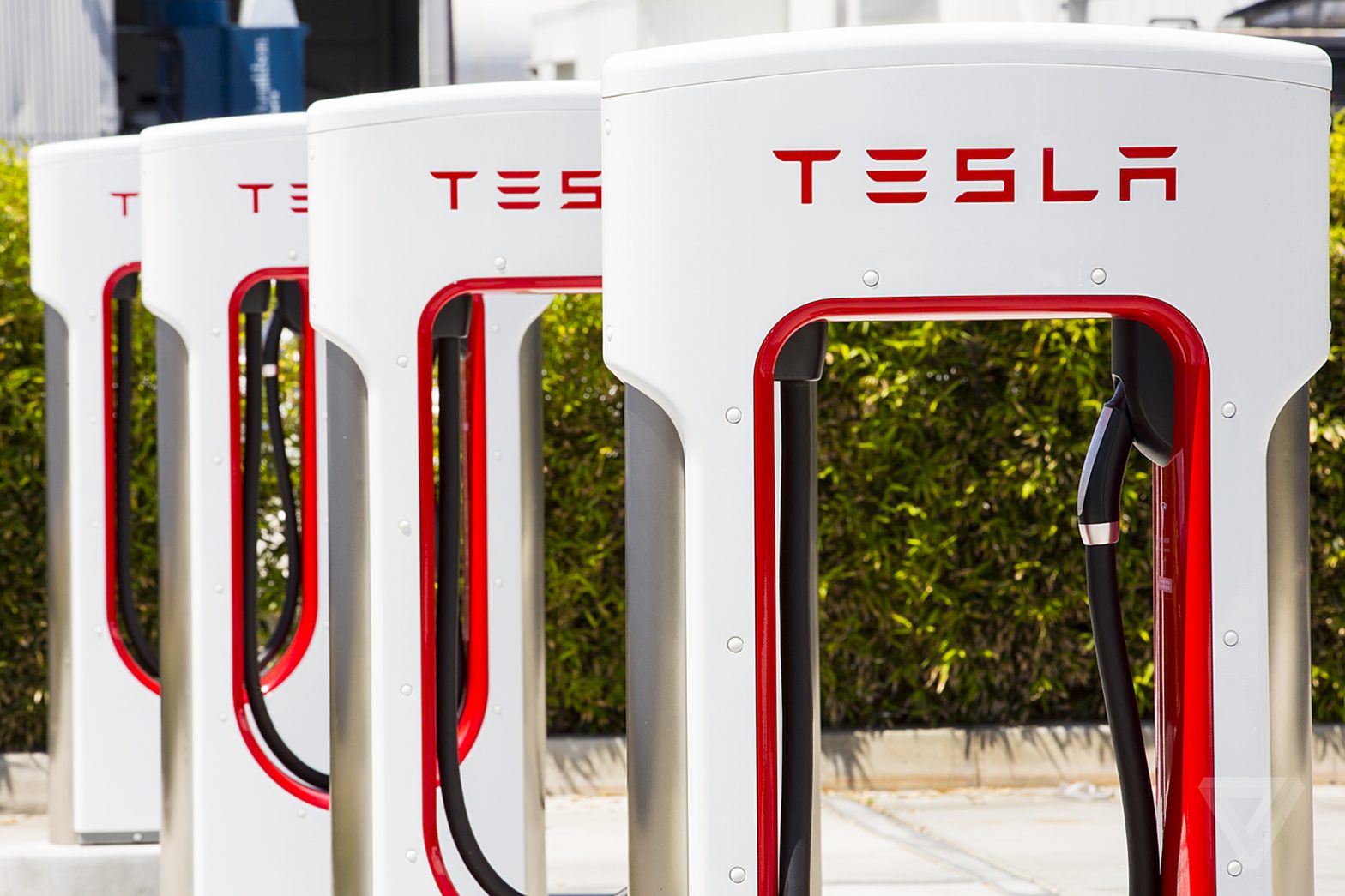/
The payment structure for non-Tesla EV owners is a bit wonky. You can either pay per charge or sign up for a monthly $13 membership for reduced rates.
:format(webp)/cdn.vox-cdn.com/uploads/chorus_asset/file/6437635/akrales_160419_1019_A_0257.0.png)
Tesla owners pulling up to certain Supercharger locations in the US are being greeted with an unfamiliar sight: electric vehicles from other car companies, parked in the spots previously reserved just for them, sipping up electrons alongside Model 3s and Model Ys.
Tesla’s Supercharger network, once exclusive to customers of Elon Musk and only Elon Musk, is now open to non-Tesla EVs. The company, which has been allowing other companies’ EVs to use its chargers in Europe for months, is now doing the same in the US — as per the instructions laid out in the Biden administration’s $7.5 billion plan to expand EV charging options to more Americans.
“It’s always been our ambition to open the Supercharger network to non-Tesla EVs, and by doing so, encourage more drivers to go electric,” the company said in a blog post.
The experience of charging at a Tesla Supercharger will be very different for non-Tesla EV owners than it is for Tesla owners. Unlike most EV charging stations, Tesla’s Superchargers are exceedingly simplified, with no touchscreens or payment kiosks. According to Tesla, here’s how it will break down:
Download the Tesla app (version 4.18.0 or higher) for iOS or Android and create a Tesla Account.
Select ‘Charge Your Non-Tesla’ and find your Supercharger site.
Add your payment method, select a stall, unlock the adapter, plug-in your car, and tap ‘Start Charging.’
Select ‘Stop Charging’ to complete your session.
Sounds easy enough, but as you can see from this video, it’s a little more complicated than that.
That’s a lot of tapping and swiping! When a Tesla owner needs a charge, they simply pull up, plug in, and that’s it. The charging port on the vehicle even opens automatically when it detects a Supercharger nearby. There’s no question that the experience will be much more convenient for Tesla owners, as it should be. But the payment structure is also a lot different.
Non-Tesla owners can pay per charge, or they can sign up for a monthly $12.99 membership that gives them a discounted rate. Non-Tesla owners will pay a higher rate for charging at a Supercharger than Tesla owners, which Tesla says is meant to cover the “additional costs incurred to support charging a broad range of vehicles and adjustments to our sites to accommodate these vehicles.”
Unlike in Europe, Tesla Superchargers in the US use a proprietary connector — this was Tesla’s “competitive moat,” the thing that offered protection from other automakers. In order to allow non-Tesla vehicles to access the chargers, the company installed a device called the “Magic Dock,” in which a CCS adapter is applied to the connector. CCS is the agreed-upon standard that most EV makers in North America have adopted for DC fast charging.
Like Tesla owners, non-Tesla EV owners will incur an idle fee if they leave their vehicle plugged in for too long. And Tesla says it will be monitoring the rollout for congestion and other possible issues. It’s unclear how many sites in the US are now accessible to non-Tesla EVs, but Reddit users and other hyper-vigilant Tesla fans are posting online about new stations seemingly every day.
“More customers using the Supercharger network enables faster expansion,” the company says. “Our goal is to learn and iterate quickly, while continuing to aggressively expand the network, so we can eventually welcome both Tesla and non-Tesla drivers at every Supercharger worldwide.”
